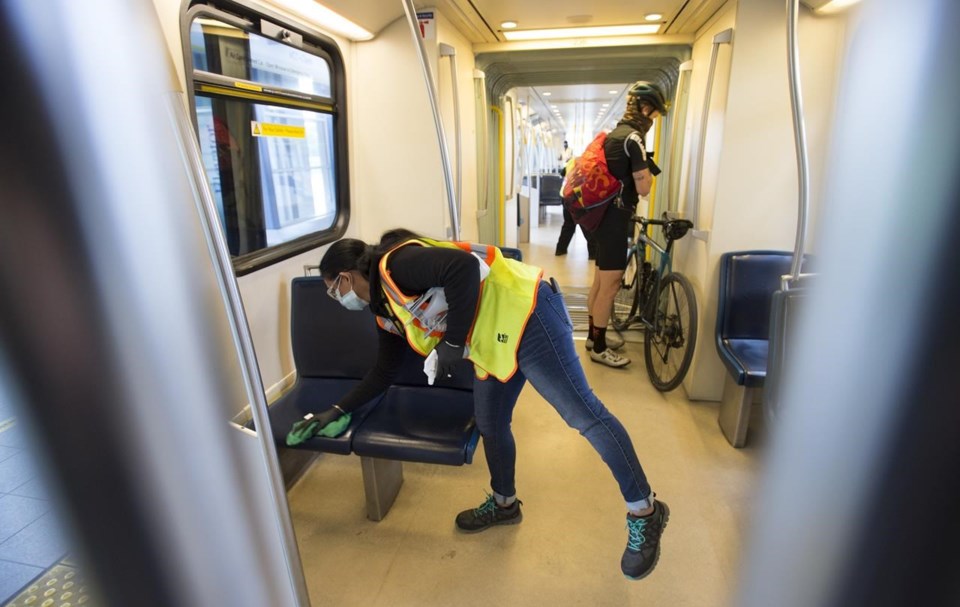VANCOUVER — Results of a study led by Metro Vancouver's transit operator reveal copper on high-touch surfaces is lethal to bacteria.
A statement from TransLink says the findings of the industry-leading trial show copper products kill up to 99.9 per cent of all bacteria within one hour of surface contact.
As part of its response to the COVID-19 pandemic, TransLink was the first transit agency in North America to test copper on high-touch surfaces.
The pilot study was launched after unrelated studies showed copper is both durable and effective at killing germs.
Phase 1 of the pilot, which was fully funded by mining firm Teck Resources, began last November and continued for five weeks on surfaces of two buses and two SkyTrain cars.
A second phase will begin in the coming months using a larger sample to verify the results, testing copper over a longer period on more transit vehicles, and focusing tests on the most effective products identified from Phase 1.
TransLink interim CEO Gigi Chen-Kuo says they are excited to find out more about the impact of copper on viruses such as the ones that cause COVID-19.
"This research could help us, other transit agencies, and anyone with surfaces in shared public spaces keep high-touch areas as clean as possible,” she says in the statement.
The project stems from a partnership between TransLink, Teck, Vancouver Coastal Health, the University of British Columbia and the VGH & UBC Hospital Foundation.
Teck funded the initial phase as part of its Copper & Health program and the company will also support Phase 2.
This report by The Canadian Press was first published March 4, 2021.
The Canadian Press




